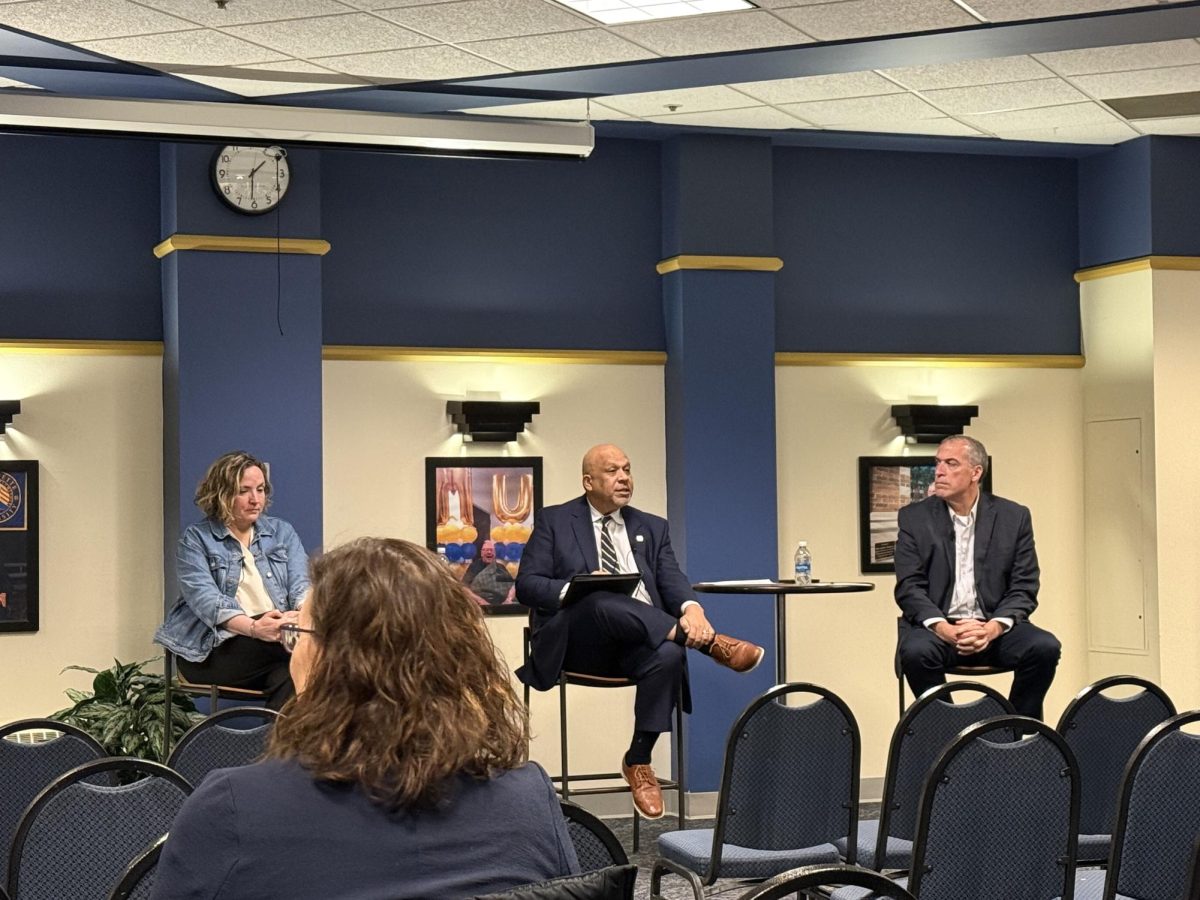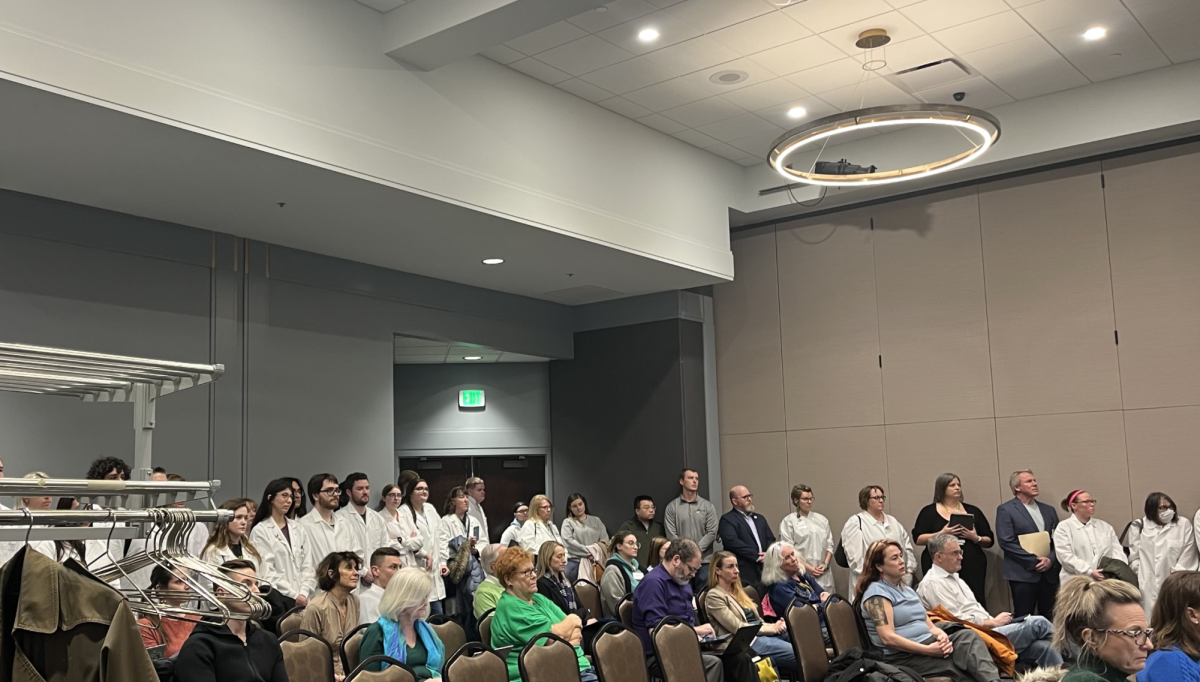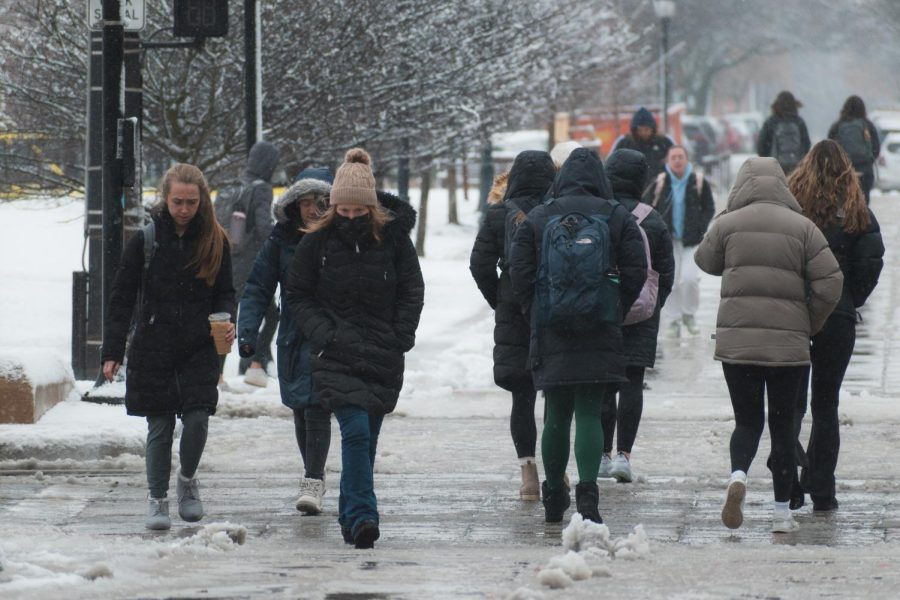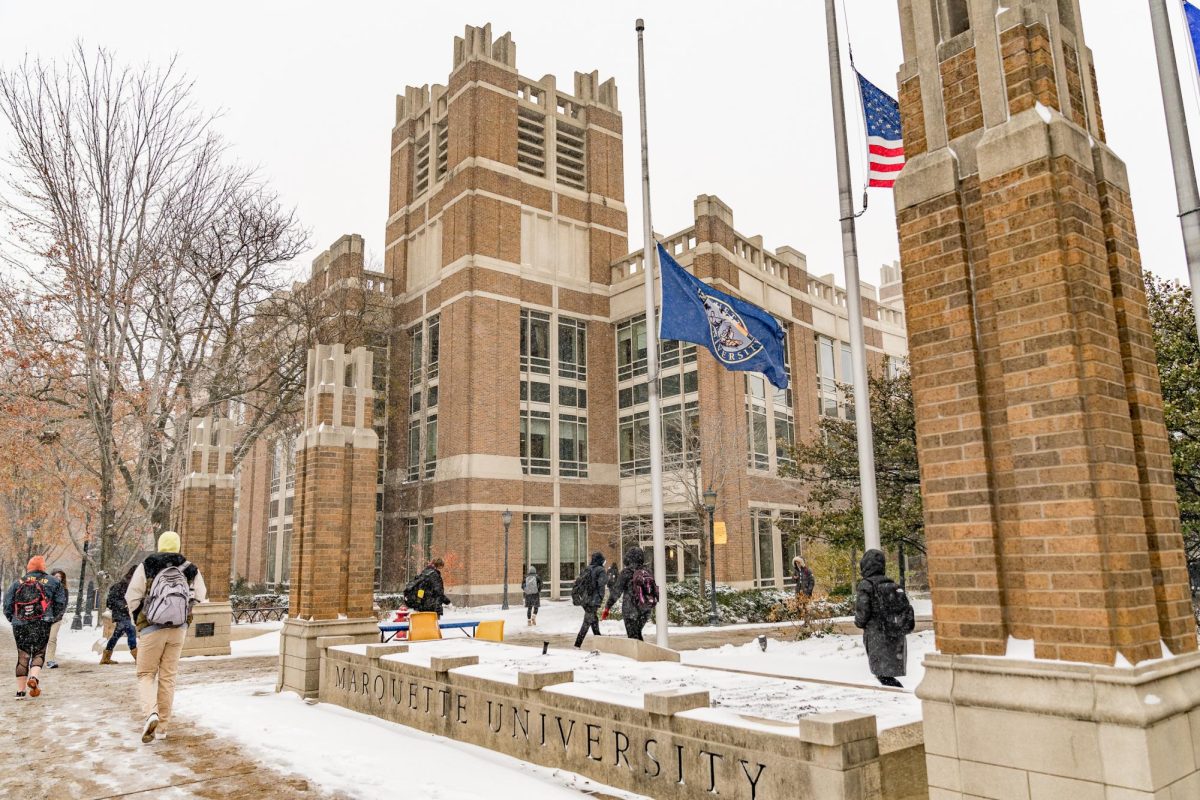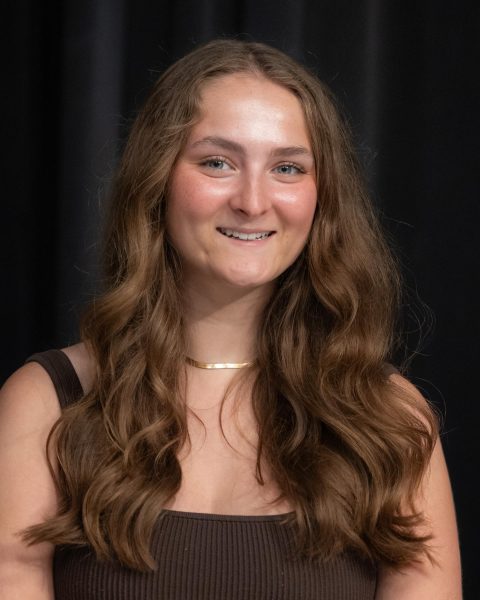Kicking the meeting off, University President Michael Lovell thanked the entire Marquette community for their continuous support through his diagnosis with sarcoma, and said it has helped him stay positive during these times.
The rest of the Marquette University’s Academic Senate meeting consisted of a variety of campus-relating topics while mainly focusing on fall 2021 faculty statistics and fall 2022 student projections.
Lovell said he was proud of how the university was handling the COVID-19 pandemic, especially with the COVID-19 vaccine mandate for the 2021-2022 academic year, requiring all students on campus to receive the vaccine unless granted exemption for personal, religious or medical reasons and strongly encouraging faculty and staff to be vaccinated as well. Lovell said he does not see the mask mandate changing anytime soon.
“The fact that 94% of our community is vaccinated has allowed us to be a community this year, and … (in) the students’ perspective — they’ve experienced the campus … (in) the way they want to and that’s with each other,” Lovell said.
Lovell also acknowledged Marquette’s COVID-19 response team for meeting on a daily basis at first and now meeting weekly “to position the campus for being successful in the midst of the pandemic.”
Provost Kimo Ah Yun then provided the Senate with his provost report.
He first informed everyone about executive searches for a library dean, nursing dean and vice president for inclusive excellence.
“We have three search groups that are working actively. They are finished with the listening sessions. All three are in the process of putting together the profile and opportunity challenges. That’s ongoing, and we expect that to be done sometime soon. It looks very likely that they will be posted sometime next month,” Ah Yun said. “Which would give us a period of time to be able to collect applications.”
Ah Yun then said the university has over 9,500 students who have submitted their undergraduate applications to Marquette. Unlike years before when Marquette had rolling admissions, the university is now employing a singular application deadline on Dec. 1. Decision Day for Marquette will occur on Tuesday, Dec. 21.
“That’s up single digit percentage above where we are (were) last year … but we also know that we want to get a larger class. We ended up around 1,660 or so, and we’re looking to get a class about 1,843,” Ah Yun said.
The faculty council had a meeting Nov. 9 where Amber Wichowsky, associate professor of political science, said the council voted and appointed Kristin Haglund, pediatric primary care nurse practitioner program director, as the vice chair of the faculty council.
Alexandra Riley, director of institutional research and analysis, then gave a presentation on the analysis of fall 2021 faculty statistics.
In the presentation, Riley said undergraduate enrollment has been on a decline throughout the past two fall terms because the incoming classes have been smaller. Similarly, all undergraduate colleges have also displayed a decline in enrollment since 2019 except for the College of Nursing; however, graduate full-time equivalency has been steadily increasing since 2017.
In 2021, Riley said the student to faculty ratio is at its second lowest point throughout the past 10 years. While student FTE is at its lowest in Marquette’s 10-year history, Riley said faculty FTE is much higher than previous years. The fall 2021 student-to-faculty ratio is 13.4.
“FTE of tenure and tenure track and full-time nontenure-track faculty declined while the number of part-time NTT faculty increased,” Riley said in her presentation. “T/TT faculty declined by 35. FT NTT faculty declined by 15. Part time NTT increased by 10.”
Riley said that the combination of faculty by type has also fluctuated over time, for tenure/tenure track faculty declined by around nine percentage points and full time non-tenure track faculty increased by around 10 percentage points. Overall, Marquette has a greater percentage of tenure/tenure track faculty than a typical private four-year R2 institution — while riley said the average institution has 50% of faculty FTE as tenure/tenure track, Marquette has 55%.
Marquette’s faculty also varies by college. In the colleges of Arts & Sciences and Engineering, tenure/tenure track consist of over 50% of faculty FTE. Tenure/tenure track are about equal at 50% in the College of Business Administration, Communication and Education and Health Sciences and Nursing have a majority of non-tenure track faculty.
Furthermore, faculty members who identify as persons of color is also increasing. Riley said in 2021, Marquette has the highest percentage of faculty of color for tenure/tenure track and full-time non-tenure track ranks, and the second highest percentage in part-time faculty—making this percentage of faculty members of color the second largest in Marquette’s past.
Riley said that the percentage of female faculty is the highest it’s been in Marquette’s history, at 48.2% as well as tenure/tenure track faculty — which is also the highest percent in Marquette’s history.
Riley then went on to present about fall 2022 student projections.
“Student FTE will likely decline again in fall 2022 in the undergraduate population. Except larger first year class, similar second year and similar third and fourth year classes,” Riley said in her presentation.
This story was written by Julia Abuzzahab. She can be reached at julianna.abuzzahab@marquette.edu



